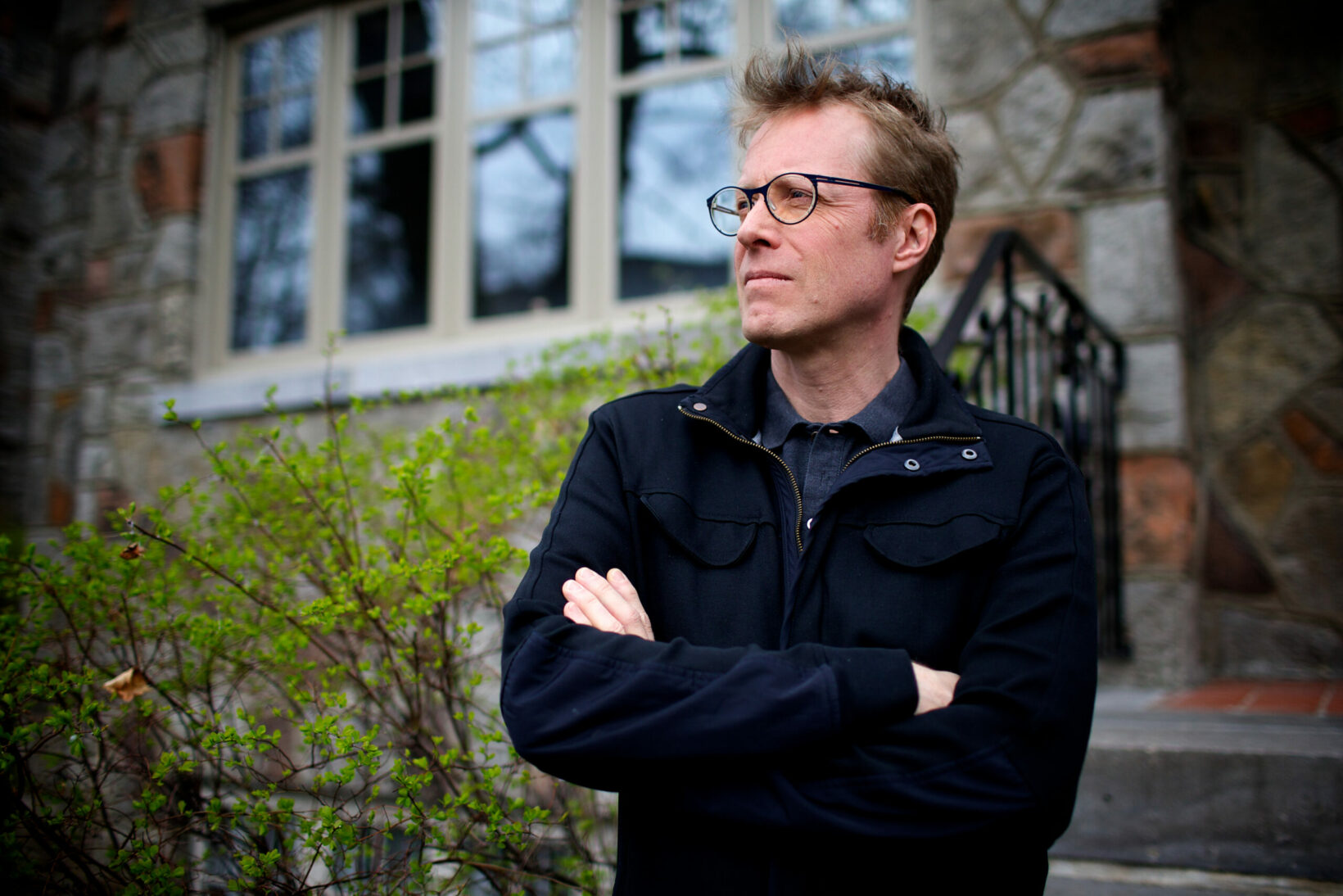From McGill News 
by Jonathan Montpetit, BA’03, MA’16
Memory operates like a strip of film. Bonded to one side of a film strip is the sound track, to other the optical track; together they make a movie. In much the same way, memory is composed of parallel emotional and episodic elements. When the emotional side is intensified, our memories can become unbearable, as if someone has jacked up the sound track so that images of our past are accompanied by screeching feedback.
That is how Alain Brunet, an associate professor of psychiatry based at the Douglas Mental Health University Institute, explains a traumatic memory. “If we could diminish the emotional power of the memory then we would be able to help people with PTSD [post-traumatic stress disorder],” he says. Brunet has spent the better part of the past decade perfecting a treatment that does just that.
His treatment builds on research that found a common blood-pressure regulator, propranolol, interferes with the brain’s ability to consolidate and reconsolidate memories. Given this effect, Brunet wondered if the drug could be used to reduce the emotional intensity of a given memory. He began administering propranolol to patients suffering from PTSD, then asking them to write down recollections of the traumatic event. When this process was repeated over the course of six sessions, as many as two-thirds of his patients were able to recall the event without displaying symptoms of traumatic stress.
The treatment – sometimes referred to as the “Brunet method” – brought the McGill researcher a certain renown. Maclean’sdescribed him as a Canadian “making the world a better place.” QS Magazine included his work on its 2008 list of the top 10 discoveries of the year. But while the Brunet method was tested successfully in several clinical trials, it had never been used on a large scale.
That opportunity came in the wake of the November terrorist attacks in Paris. Militants tied to the Islamic state killed 130 people, and injured more than 360. But that is only the tip of the damage wrought by the attackers. It is estimated a further 3,000—5,000 people are suffering from PTSD, or will develop symptoms in the coming months.
France hasn’t been the site of such deadly violence since the Second World War, and Brunet knew its health services would be overwhelmed. So he cashed in his frequent flyer points and boarded a plane for Paris. There he met with officials from the city’s large network of hospitals. He convinced them that his method for treating PTSD could help ease the strain on their resources. “It was the most important sales pitch of my life,” Brunet says.
Over the next two years, Brunet and his team will train about 100 French psychologists and psychiatrists. The hope is that, armed with the Brunet method, they will be able to significantly increase Paris’s ability to deal with the psychological wounds of the attacks. French public health authorities have already started the process of recruiting the first 400 patients for the project.
The advantage of the Brunet method is efficiency. It has roughly the same success rate as other PTSD treatments. But psychotherapeutic approaches tend to have high relapse rates, and so are cost and time intensive. Pharmaceutical approaches, meanwhile, have high dropout rates because of the unpleasant side effects associated with many of the drugs used to treat PTSD. “They are efficacious but not efficient,” Brunet says of these methods.
His method, on the other hand, is less time and cost intensive than psychotherapy, and it doesn’t suffer from high dropout rates: “We can get the same results, but with an economy of means.” It allows a health system to treat more PTSD patients, and to deliver that treatment more rapidly, than the other approaches. Psychiatry is generally ill-equipped to deal with mass casualties, Brunet notes. He believes his method overcomes that weakness. “It democratizes treatments for PTSD.”
Treating PTSD as a public health concern is a relatively recent phenomenon. Its effects can be devastating on individuals, and is linked to depression and substance abuse, among other health problems. In severe cases, it saps the desire to engage with the outside world; its sufferers imprisoned by perpetual flashbacks of often violent events. “For people suffering from PTSD, it’s like the event happened yesterday,” Brunet says. “That’s very different from the normal destiny of an emotional memory.”
If Brunet’s project in France proves successful, he hopes the model can be exported to other cities forced to reckon with similarly devastating events. He imagines it as part of the standard frontline care delivered in the days and weeks after a terrorist attack or natural disaster. “Many people suffering from PTSD don’t know that effective treatment exists,” he says. “People don’t have to stay that way.”
Enquête de Santé | Attentats, agressions : surmonter le traumatisme – Enquête de santé le documentaire
Radio-Canada | Le psychologue qui soigne le choc post-traumatique en 6 semaines
Le Devoir | Peut-on effacer les souvenirs?
Santé Magazine | Stress post-traumatique : une guérison possible en six semaines
May 26, 2016
